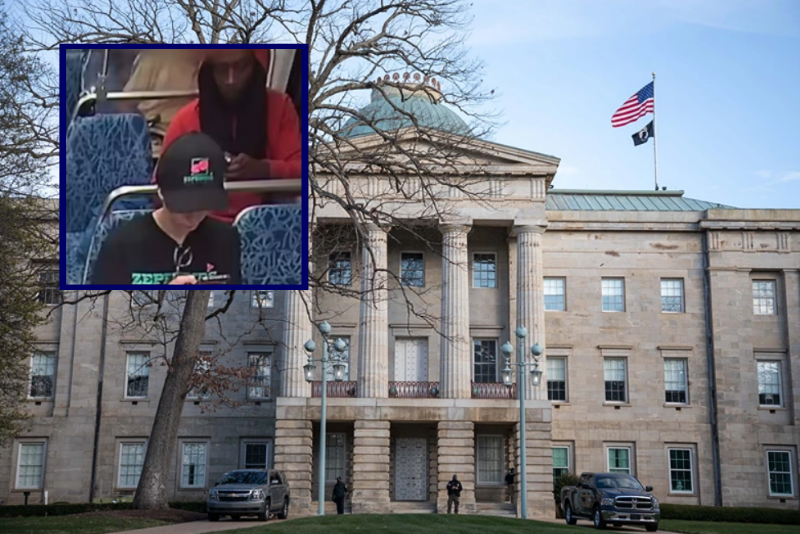
OAN Staff Blake Wolf and Brooke Mallory
1:00 PM – Wednesday, September 24, 2025
Following the fatal stabbing of 23-year-old Ukrainian refugee Iryna Zarutska on a Charlotte light rail train last month, North Carolina lawmakers have approved legislation aimed at ending cashless bail for violent offenses — citing the need to strengthen public safety and prevent similar incidents in the future.
“Iryna’s law” was approved by the state House with an 82–30 vote and now awaits Governor Josh Stein’s (D-N.C.) desk for a final signature.
Decarlos Dejaun Brown Jr., who admitted to killing Zarutska, encountered the Ukrainian woman on a Charlotte train last month. After the brutal murder — captured on video — he can be heard saying “I got that White girl.”
Surveillance footage released by the Charlotte Area Transit System (CATS) shows Zarutska boarding the train and sitting in front of Brown. Approximately four minutes later, Brown pulls out a pocketknife and stabs her three times from behind, including at least once in the neck. Zarutska remained conscious for nearly a minute before collapsing, and Brown exited the train two minutes later and was arrested by police immediately.
Brown Jr. had previously been arrested at least 14 times, including a recent arrest in January, prompting conservatives to point to the state’s cashless bail system as one key reason that Zarutska’s life was taken.
The law would eliminate cashless bail for suspects “charged with a violent offense,” while also compounding an “aggravated sentencing factor” for crimes perpetrated against public transportation passengers.
“Iryna should still be alive. She should be thriving and enjoying time with her family and friends,” stated North Carolina GOP Senate President Phil Berger. “We cannot let North Carolina be held hostage by woke, weak-on-crime policies and court officials who prioritize criminals over justice for victims. We are also taking steps to revive the death penalty for those who commit the most heinous crimes.”
“For nearly two decades, judicial and administrative roadblocks have stopped true justice for victims, and it’s time for that to end,” Berger continued, noting that some Senate Democrats stormed out of the session and refused to vote on the measure.
The Democrat walkout reduced opposition, but did not stop the bill from passing since the majority party still had enough members to meet quorum and vote in favor.
Soon after, GOP State House Speaker Destin Hall asserted that lawmakers “will simply not tolerate polices that allow violent offenders back onto our streets to commit more crimes and jeopardize public safety.”
The bill introduces alternative execution methods, such as firing squads or electrocution, if lethal injection is unavailable or deemed unconstitutional. Additionally, it mandates that certain death row appeals be heard and reviewed by courts by the end of 2027, addressing the state’s nearly 20-year moratorium on executions.
However, Mecklenburg County Senate Democrat Mujtaba Mohammed argued that the bill “exploits grief for headlines, clicks and votes.” He claimed that the bill’s focus on reinstating the death penalty distracts from “more effective measures,” such as addressing mental health issues and improving public safety. In protest, Mohammed and six other Senate Democrats were the individuals to walk out of the session, refusing to vote on it.
Stay informed! Receive breaking news alerts directly to your inbox for free. Subscribe here. https://www.oann.com/alerts
What do YOU think? Click here to jump to the comments!
Sponsored Content Below

